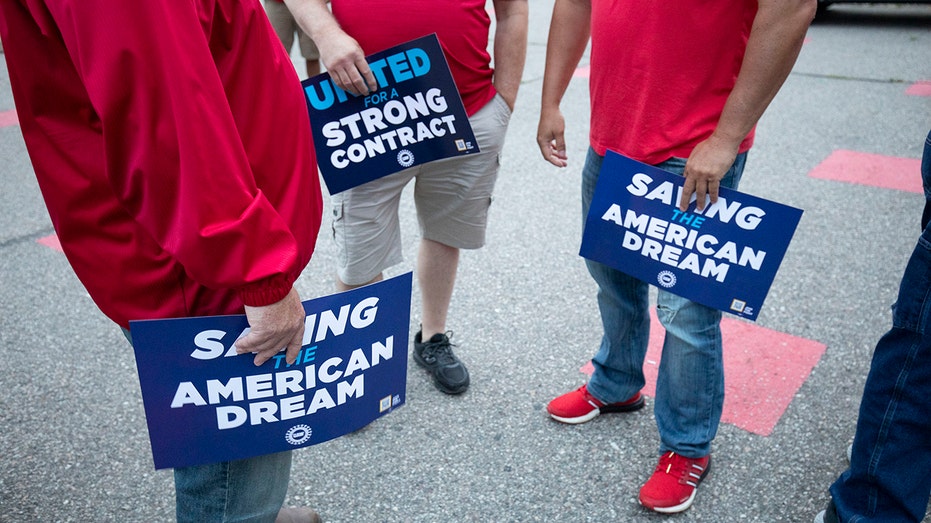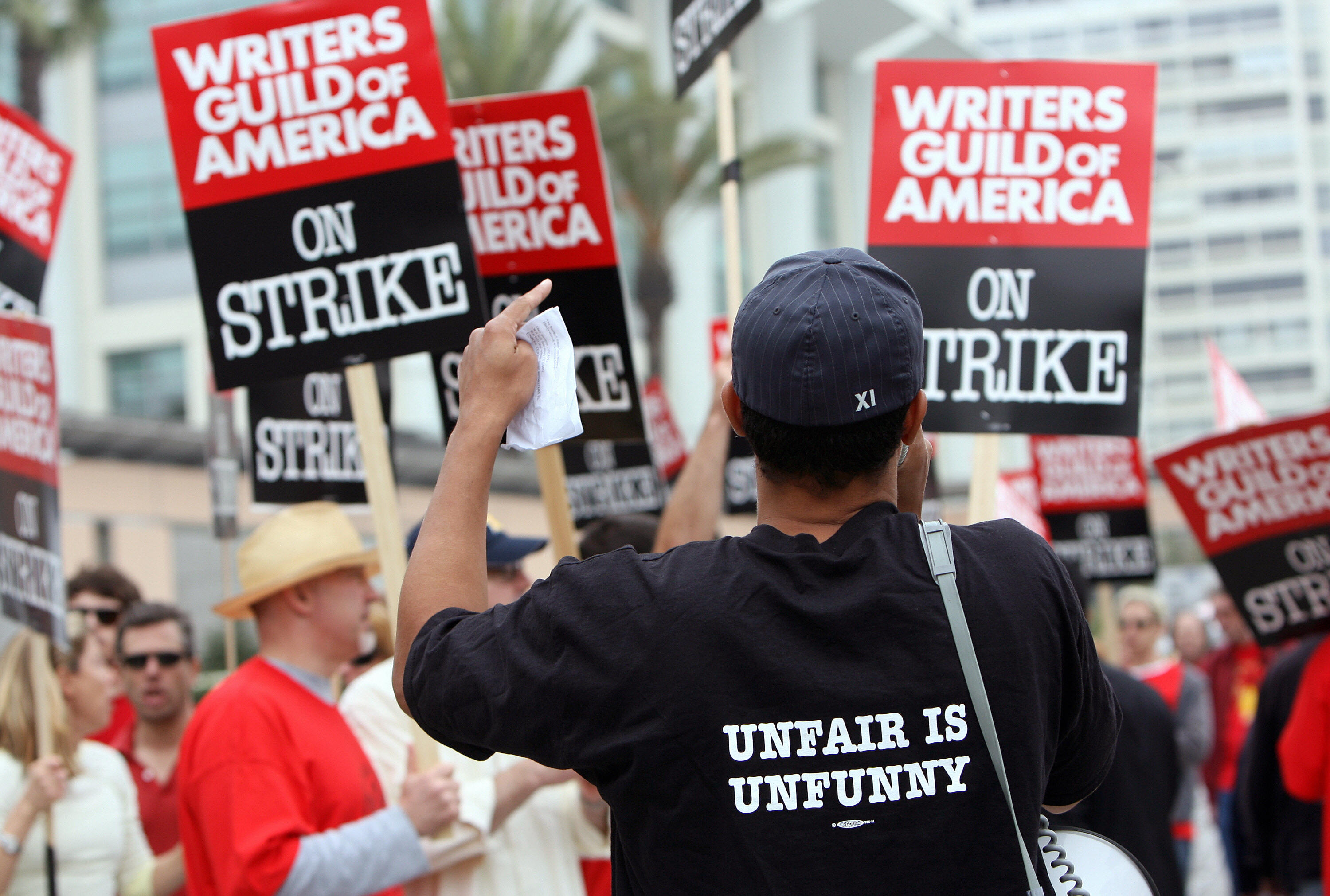Looming UAW strike could cost US economy more than $5B in just 10 days
UAW strike against Michigan's 'Big Three' automakers could cost $5.6B
Small businesses feeling impacts of Hollywood strike
Tens of thousands of film businesses serve the film industry across the country, and many companies beyond Hollywood are struggling.
If the United Auto Workers decides to strike against the "Big Three" Detroit automakers when the current contract expires this week, it could cost the U.S. economy more than $5 billion.
That is according to a new analysis from the Anderson Economic Group, a Michigan-based think tank that specializes in the economic impact of labor strikes. The report estimates that economic losses from a 10-day work stoppage could cost about $5.6 billion.
"Even a short strike would impact economies throughout Michigan and across the nation," said Patrick Anderson, CEO of the Anderson Economic Group.
FORD, GM, STELLANTIS DEALERSHIPS BRACE FOR POTENTIAL UAW STRIKE

Stellantis workers attend a "members' handshake" event with United Auto Workers president Shawn Fain to mark the beginning of the UAW's contract talks with Stellantis at the Sterling Heights Assembly Plant on July 12, 2023, in Sterling Heights, Michi ((Photo by Bill Pugliano/Getty Images) / Getty Images)
That figure includes manufacturer losses of $989 million and lost direct wages of $859 million. It does not take into consideration strike pay, unemployment benefits, unemployment taxes, income taxes, government spending or settlement bonuses.
The union's current contract with General Motors, Ford and Stellantis – the maker of Chrysler and Jeep – expires on Sept. 14. About 97% of UAW's 145,000 workers voted at the end of August to authorize a strike against the Detroit automakers if the two sides fail to reach an agreement by the 11:59 p.m. ET Thursday deadline, the UAW said.
UAW STRIKE THREAT: EXPERTS WEIGH IN ON LIKELIHOOD OF STRIKES AT FORD, GM, STELLANTIS
Negotiations remain far apart in the eleventh hour; if a deal is not reached before the deadline, the union may opt to strike at targeted auto plants, according to Reuters. The outlet reported that targeting strategic plants could force automakers to halt production and could extend the time before the UAW's $825 million strike fund is exhausted.
| Ticker | Security | Last | Change | Change % |
|---|---|---|---|---|
| I:DJI | DOW JONES AVERAGES | 50135.87 | +20.20 | +0.04% |
| I:COMP | NASDAQ COMPOSITE INDEX | 23238.66991 | +207.46 | +0.90% |
| SP500 | S&P 500 | 6964.82 | +32.52 | +0.47% |
| GM | GENERAL MOTORS CO. | 80.68 | -3.56 | -4.23% |
| F | FORD MOTOR CO. | 13.59 | -0.21 | -1.52% |
| STLA | STELLANTIS NV | 7.30 | +0.04 | +0.62% |
The main point of contention between the two sides is higher pay, with UAW President Shawn Fain saying the union is seeking a more than 40% general pay raise for rank-and-file members over four years.
Full-time assembly plant workers at Ford and GM earn $32.32 an hour, while part-timers currently make about $17 an hour. Full-time employees at Stellantis earn $31.77 an hour, and part-time workers earn close to $16 an hour.
GM MAKES ‘INSULTING PROPOSAL’ AHEAD OF AUTOWORKER DEADLINE, UAW PRESIDENT SAYS
The union is also pushing for making all temporary workers at the automakers permanent, cost-of-living adjustments, increases in pension benefits for current retirees and restoring pensions for new hires, among other benefits.
Fain has called the demands the "most audacious and ambitious list of proposals they've seen in decades."

United Auto Workers (UAW) President Shawn Fain speaks with workers at the Ford Michigan Assembly Plant on July 12, 2023, in Wayne, Michigan. ((Photo by Bill Pugliano/Getty Images) / Getty Images)
Automakers – who have noted they are facing a multibillion-dollar shift to electric vehicles – made a counteroffer that includes far more modest pay increases. Stellantis offered a 14.5% pay increase over four years, while Ford and GM have each offered pay increases of about 10% over four years.
Fain slammed the proposals as "insulting."
GET FOX BUSINESS ON THE GO BY CLICKING HERE
Stellantis has sharply criticized the demands of the autoworkers. In a letter to employees in August, Stellantis North America Chief Operating Officer Mark Stewart belittled the "theatrics and personal insults" from Fain and urged a "focus on reality from everyone involved," according to Reuters.
The UAW's demands "could endanger our ability to make decisions in the future that provide job security for our employees," Stewart continued. "This is a losing proposition for all of us."





















